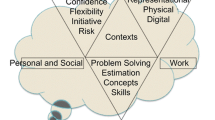Abstract
The growing emphasis on accountability, competitiveness, efficiency, and profit demonstrates how language education has been impacted by neoliberalism. To bring out the implications of neoliberalism on language education, we explore how language learning is increasingly constructed as a form of linguistic entrepreneurship, or an act of aligning with the moral imperative to strategically exploit language-related resources for enhancing one’s worth in the world. To critically examine the political conditions that promote such an ethical regime, we focus on how linguistic entrepreneurship can be indexed through two distinct aspects, the motivation for and the mode of language learning. We then discuss under what circumstances the notion of linguistic entrepreneurship might be invoked and what kind of contradictions this entails. We conclude by considering the implications for language policy and language education.
Similar content being viewed by others
Notes
http://www.entrepreneuriallinguist.com/about/; accessed August 9, 2015.
Example from previously unpublished data; translated from Korean by Park and Bae.
Example from previously unpublished data; translated from Korean by Park and Bae.
HDB = Housing Development Board, a statutory public housing organization in Singapore.
‘Full text: China’s new party chief Xi Jinping’s speech,’ November 15, 2012, www.bbc.com/news/world-asia-china; accessed August 12, 2015.
References
Alim, H. S. (2010). Critical language awareness. In N. H. Hornberger & S. L. McKay (Eds.), Sociolinguistics and language education (pp. 427–454). Tonawanda, NY: Multilingual Matters.
Bae, S. H. (2013). The pursuit of multilingualism in transnational educational migration: Strategies of linguistic investment among Korean jogi yuhak families in Singapore. Language and Education, 27(5), 415–431.
Bernstein, K. A., Hellmich, E. A., Katznelson, N., Shin, J., & Vinall, K. (2015). Introduction to special Issue: Critical perspectives on neoliberalism in second/foreign language education. L2 Journal, 7(3), 3–14.
Block, D. (2010). Globalization and language teaching. In N. Coupland (Ed.), The handbook of language and globalization (pp. 287–304). Malden, MA: Blackwell.
Bourdieu, P. (1986). The forms of capital. In J. Richardson (Ed.), Handbook of theory and research for the sociology of education (pp. 241–258). New York: Greenwood.
Cameron, D. (2002). Globalization and the teaching of ‘communication skills’. In D. Block & D. Cameron (Eds.), Globalization and language teaching (pp. 67–82). London: Routledge.
De Costa, P. I. (2015). Re-envisioning language anxiety in the globalized classroom through a social imaginary lens. Language Learning, 65(3), 504–532.
De Costa, P. I. (2016a). Scaling emotions and identification: Insights from a scholarship student. Linguistics and Education, 34, 22–32.
De Costa, P. I. (2016b). The power of identity and ideology in language learning: Designer immigrants learning English in Singapore. Dordrecht: Springer.
Dörnyei, Z., & Chan, L. (2013). Motivation and vision: An analysis of future L2 self images, sensory styles, and imagery capacity across two target languages. Language Learning, 63, 437–462.
Du Gay, P. (1996). Consumption and identity at work. London: Sage.
Evans, P. B., & Sewell, W. H., Jr. (2013). Neoliberalism: Policy regimes, international regimes, and social effects. In P. A. Hall & M. Lamont (Eds.), Social resilience in the neoliberal era (pp. 35–68). Cambridge: Cambridge University Press.
Gao, S. (2015). Multilingualism and good citizenship: The making of language celebrities in Chinese media. Paper presented at the sociolinguistics of globalization conference, 3–6 June 2015. Hong Kong University.
Gao, S., & Park, J. S. Y. (2015). Space and language learning under the neoliberal economy. L2 Journal, 7(3), 78–96.
Gee, J., Hull, G., & Lankshear, C. (1996). The new work order. Boulder, CO: Westview Press.
Heller, M. (2010). The commodification of language. Annual Review of Anthropology, 39(1), 101–114.
Holmes, J. (2013). An introduction to sociolinguistics. London: Routledge.
Kang, J., & Abelmann, N. (2011). The domestication of South Korean pre-college study abroad in the first decade of the millennium. Journal of Korean Studies, 16(1), 89–118.
Keat, R. (1991). Introduction. In Russell. Keat & Nicholas. Abercrombie (Eds.), Enterprise culture (pp. 1–17). London: Routledge.
Lo, A., Abelmann, N., Kwon, S. A., & Okazaki, S. (Eds.). (2015). South Korea’s education exodus: The life and times of early study abroad. Seattle: University of Washington Press.
Lo, A., & Kim, J. C. (2012). Linguistic competency and citizenship: Contrasting portraits of multilingualism in the South Korean popular media. Journal of Sociolinguistics, 16(2), 255–276.
Miles, W. (1998). Bridging mental boundaries in a postcolonial microcosm: Identity and development in Vanuatu. Hawaii: University of Hawaii Press.
Norton, B. (2013). Identity and language learning: Extending the conversation (2nd ed.). Tonawanda, NY: Multilingual Matters.
Ong, A. (2006). Neoliberalism as exception. Durham: Duke University Press.
Park, J. S., & Bae, S. (2009). Language ideologies in educational migration: Korean jogi yuhak families in Singapore. Linguistics & Education, 20(4), 366–377.
Park, J. S., & Wee, L. (2012). Markets of English. London: Routledge.
Piller, I., & Cho, J. (2013). Neoliberalism as language policy. Language in Society, 42, 23–44.
Scheuer, J. (2001). Recontextualization and communicative styles in job interviews. Discourse Studies, 3, 223–248.
Stroud, C., & Wee, L. (2011). Style, identity and literacy: English in Singapore. Clevedon: Multilingual Matters.
Tollefson, J. (1991). Planning language, planning inequality. New York: Longman.
Van Doorn, N. (2014). The neoliberal subject of value: Measuring human capital in information economies. Cultural Politics, 10(3), 354–375.
Author information
Authors and Affiliations
Corresponding author
Rights and permissions
About this article
Cite this article
De Costa, P., Park, J. & Wee, L. Language Learning as Linguistic Entrepreneurship: Implications for Language Education. Asia-Pacific Edu Res 25, 695–702 (2016). https://doi.org/10.1007/s40299-016-0302-5
Published:
Issue Date:
DOI: https://doi.org/10.1007/s40299-016-0302-5




